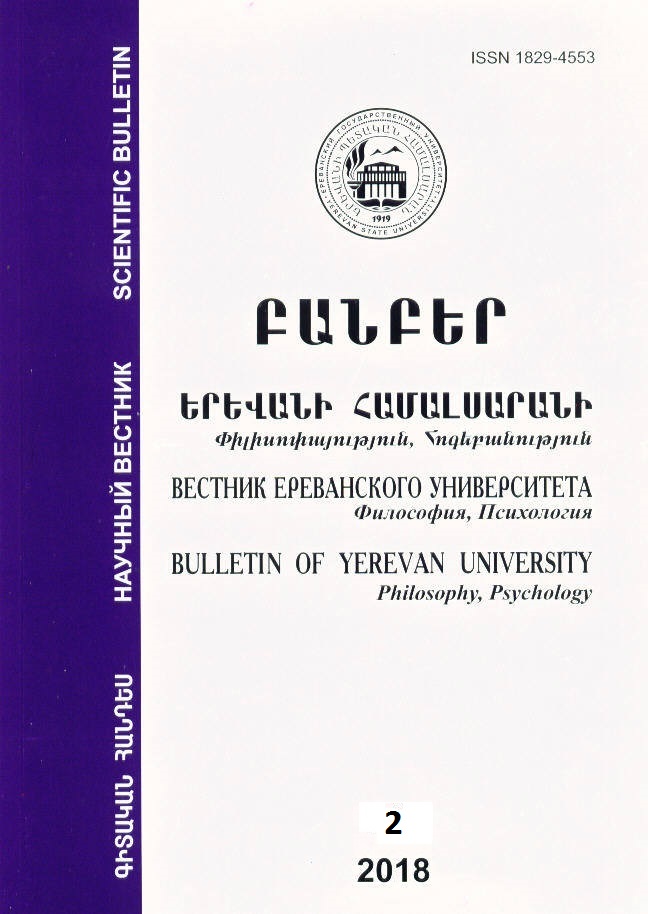Tolerance as a Sociocultural Norm of Formation of Relations between «The Insider» and «The Outsider»
DOI:
https://doi.org/10.46991/BYSU:E/2018.9.2.015Keywords:
“the insider”, “the outsider”, sociocultural norm, construction, dialogueAbstract
In current globalized world, which is arising from the civilizational, socio-cultural, political and anthropological transformations, study of the problem of tolerance, as a mechanism for the construction of modern social and cultural space, as a sociocultural norm in the context of the forma tion of a dichotomy of “the insider” and “the outsider” acquired theoretical and practical significance. Tolerance, as a philosophical category in the scientific literature first used as the condition for the dialogue between the various religions, but in the context of modern civilizational, political and socio-cultural transformations the problem of tolerance has acquired additional semantic meaning. In the modern scientific community, the category of tolerance is used as a: political tolerance, intercivilizational tolerance, tolerance between different generations, interreligious tolerance, international tolerance, intercultural tolerance etc. Tolerance implies the right of the individual to preserve his/her autonomy. As the quality of the personality, tolerance implies a mood for dialogue, the cognition of a new, “the outsider”, and also does not exclude the possibility of changing the system of views and representation of the individual. Thus, in the modern world, tolerance is the sociocultural norm, which makes it possible to create harmonious social relations between “the insider” and “the outsider”.
Downloads
Published
Issue
Section
License
Copyright (c) 2021 Bulletin of Yerevan University

This work is licensed under a Creative Commons Attribution-NonCommercial 4.0 International License.

